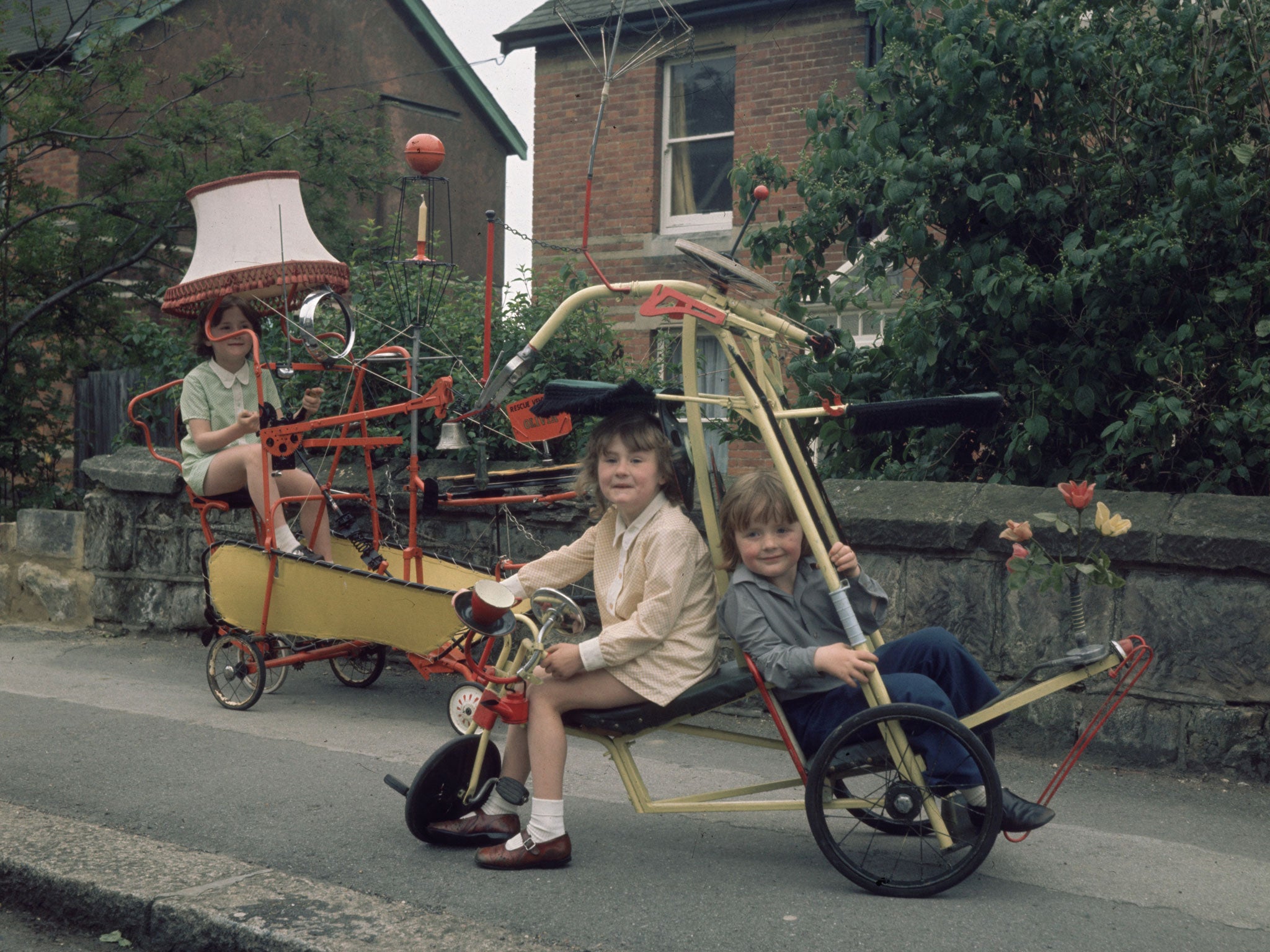Your support helps us to tell the story
From reproductive rights to climate change to Big Tech, The Independent is on the ground when the story is developing. Whether it's investigating the financials of Elon Musk's pro-Trump PAC or producing our latest documentary, 'The A Word', which shines a light on the American women fighting for reproductive rights, we know how important it is to parse out the facts from the messaging.
At such a critical moment in US history, we need reporters on the ground. Your donation allows us to keep sending journalists to speak to both sides of the story.
The Independent is trusted by Americans across the entire political spectrum. And unlike many other quality news outlets, we choose not to lock Americans out of our reporting and analysis with paywalls. We believe quality journalism should be available to everyone, paid for by those who can afford it.
Your support makes all the difference.Michael Gove's urging last week that children must work harder, with longer school days and shorter holidays, develops that dismal theme so beloved by politicians that the answer to everything in this life is work, more work, and then a bit of overtime. "The expectation is that to succeed," said the Secretary of State for Education, "hard work is at the heart of everything". Not counting luck, contacts, privilege and a good public-school education, of course.
Our Protestant roots are showing – yet again. The work ethic nags at us, if not from the mouths of politicians then from the backs of our minds when we are trained to think that if we are not working hard at something, including leisure, our meaning as people is diminished.
When I was growing up in the '60s and '70s, there was still plenty of respect for the sincerely uncommitted. Work, for my parents' generation, was simply considered a necessary evil. It was the price you had to pay before you enjoyed your time off, or your 20-minute tea break, or your 90-minute lunch hour.
Children spent a lot of time doing pretty much nothing. This was not seen as fecklessness, but as an essential part of childhood that would fuel the imagination and allow children to dream, play, and do the generally useless things that only children and aristocrats are privileged to do. In fact, my recall of sitting reading trashy comic books in long, guilt-free afternoons is one of my most treasured memories.
Around 1980 this began to change, and the lower-middle-class obsession with work took hold, imported from can-do, must-do Americans. In this analysis of the meaning of human life, to not be working, to not be doing was de facto immoral. It was a betrayal of the community and the neglect of a sacred duty.
This attitude has intensified. I have lost count of the number of politicians who trumpet the virtues of the "decent hard-working majority", as if the words "decent" and "hard-working" were inseparable.
The millions who have retired, revered as "senior citizens", or those who can't get work because of high unemployment, are clearly exempted from this definition of virtue, but the paradox remains unremarked upon. Likewise, children would once have been exempt from this modern form of religion. No longer. Now with targets and economics forecasts to fulfil, and a new workforce to train, childhood is fraying and seeping into adulthood. No time for playing Pooh-sticks on the river. How's that going to make you a living when you grow up?
The myth grows and spreads – work is its own fulfilment. I am one of the very few groups of people who enjoys a relatively satisfying career, as a writer – at least, a lot of people seem to want to do it – and I am here to tell you that even this sucks a lot of the time. I can't imagine how a shelf-stacker might feel being told that they are being given the gift of work ( sometimes unpaid) since it will existentially complete them. Yes, it's necessary. Yes, no one should freeload for life. But it tends not be fun. It certainly doesn't make you a complete human being.
A few quiet voices suggest that work is not the aim of life. The New Review columnist Tom Hodgkinson, who runs the Idler Academy in west London, peddles the odd idea that the purpose of life is not industry, but cultivated leisure. I'm with him. Followers of Zen will understand that life isn't about anything but itself. No effort required.
I couldn't agree more. And I could give a number of other examples, but frankly, I've had enough of knocking out this article. Instead, I'm going to take the Zen Master's advice: "Don't do something, just sit there."

Join our commenting forum
Join thought-provoking conversations, follow other Independent readers and see their replies
Comments